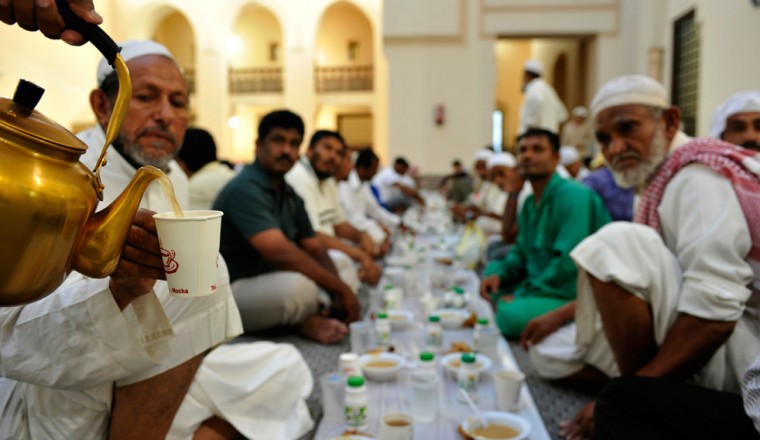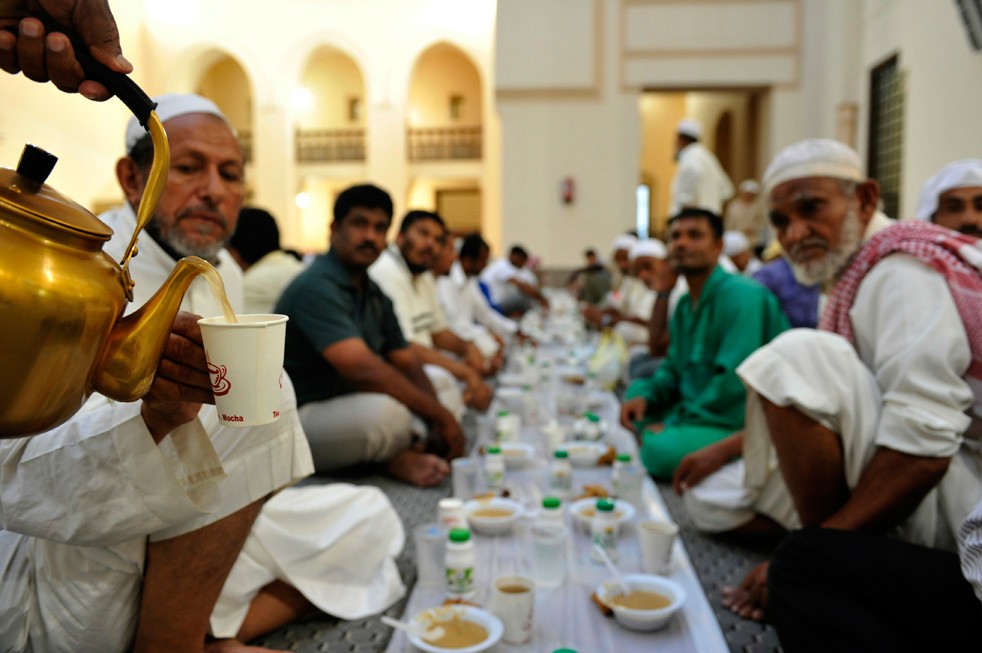

Dr Michael Mosley has set himself a truly ambitious goal: he wants to live longer, stay younger and lose weight in the bargain. And he wants to make as few changes to his life as possible along the way. He discovers the powerful new science behind the ancient idea of fasting, and he thinks he’s found a way of doing it that still allows him to enjoy his food. Michael tests out the science of fasting on himself – with life-changing results.
Having watched the programme, we decided to write a few insights about what we learnt but also to revisit what we already knew. This programme serves as a powerful reminder.
WHAT MICHAEL DISCOVERS
In his journey, he explores 2 things: (1) the secrets to good health and (2) the secrets to longevity. His first discovery is that you should not eat very much with a particular need to watch your diet. From there he goes on to find a man who knows all about the growth hormone IGF-1 and about fasting. He tells him to fast for 3 days, he does so and the results are impressive, Michael reduced the risk of getting many age-related diseases.
He doesn’t stop there. He goes on to discover what is called, “intermittent fasting” – a fasting on alternate days. So one day he will fast and the next he will feast. What is very interesting is what he discovers about the effects of fasting on the ageing of the brain. Although the tests were on mice, they suggest that human beings have a very good to excellent chance of reducing brain diseases by fasting intermittently.
The results of brain scanning on the mice revealed something far more interesting. They discovered that hunger actually created new brain cells and so by fasting you actually increase your cognitive abilities. So it is exercise, for the brain – hunger actually makes you!
He then discovers what he calls the 5-2 diet. Eat for 5 days as normal and fast for 2 days. He gives this a go for a few months. The results show that he not only lost well over a stone in weight but significantly reduced his body fat. His IGF-1 reduced by 50%, his glucose dropped to a good level, and his bad cholesterol dropped with his good cholesterol increasing. Therefore, he cut the risks he had of getting diseases but if he continues, he doesn’t have to take tablets at all.
In conclusion, he discovers the following:
- Good health and longevity in age lies in diet – food matters.
- Fasting can be done best according to the 5-2 diet system.
- Fasting makes you healthier.
- Fasting makes you sharper.
- Fasting is not everybody – certain people shouldn’t fast, for example, a pregnant woman he mentions.
Let’s dig into this a little more….
WHAT WE ALREADY KNEW
What Dr Mosley has done is interesting. He has confirmed a constant tradition of Prophets and the pious of this world. Over 1400 years ago – we were told the realities of fasting. Ever since then, we have had numerous works on the virtues and wisdom of fasting. The Horizon do not seem to realise that they have confirmed the traditions and habits of the Beloved Prophet Muhammad صلى الله عليه وسلم and those who followed and continue to follow him.
The Word Fasting
The Prophet Muhammad, upon him be the peace and blessings of God, said in a authentic narration by Abu Nu’aym: “صوموا تصحوا” (Sumoo Tasihhoo), which literally means, “Fast and be healthy.” There is a better and far more accurate translation to it however, which is “Fast and Flourish.”
These may only be two words, but these two words are rich in meaning.
The first word is “Sumoo“, fast, is derived from the Arabic root of “Saama” and Syriac, “Sawma.” The word means “to abstain” – when Muslims fast they do not only abstain from food and drink, but also abstain from various desires of the lower soul. Interestingly, the word fasting in English is derived from the Old English (Anglo-Saxon) term fastejan meaning to hold firmly, in the same way we would talk about making fast or fasten, and the sense evolution of the word is via ‘firm control of oneself‘, holding to observance. This is the purpose of a fast.
The second word, “tasihhu,” flourish, comes from the Arabic root of “Sahha/Sihha”, which means to be healthy, be in order, to heal or to correct. The reason why the word flourish better suits this is that “flourish” means to be strong, healthy, develop well, to adorn, or to be most productive or at ones peak.
In the meanings of the words, we find a purpose of the fast. We discover that fasting encompasses internal and external well being. It isn’t just about abstinence.
Why Fast?
In the Holy Qur’an we are told the following:
O believers! Fasting is prescribed for you as it was prescribed for the people before you so that you may become pious….
…The month of Ramadan (is the month) in which the Qur’an has been sent down as guidance for mankind containing clear signs which lead (to the straight road) and distinguishing (the truth from falsehood). Therefore, he who witnesses this month must fast it, and he who is ill or on a journey should complete the count by (fasting on equal number of) other days. Allah desires ease for you and does not desire hardship for you so that you complete the prescribed number of fasting days, and that you glorify Him for the guidance which He has blessed you with, and that you may become grateful. (al-Baqarah, 2:183 & 185).
These verses indicate the purpose of fasting – that you become pious and aware of God. In essence, to become a master of the self rather than a slave of the self, i.e your desires/ego. Fasting is a means of protection, a shield from illnesses of the spirit, heart and body. The verses also indicate that not everyone should fast, and fasting is fixed to a certain number of days.
Muslims observe obligatory fasting for 29 or 30 days during Ramadan, from dawn till sunset. They also fast voluntarily at least three days every month and on certain days in the year. These include – the day of ‘Arafat, the 9th and 10th days of Muharram, the six days of Shawwal, three fasts every month of the White Days (13th, 14th, and 15th of each lunar month), or fasting on Mondays and Thursdays.
Eating Well & Fasting: The Way of The Prophet ﷺ
The Prophet, upon him be the peace and blessings of God, was extremely radical in terms of simplicity when it came to his lifestyle, but he was also very balanced and moderate. He was a semi-vegetarian, you can find numerous traditions and works on how little he ate and what he used to eat. What is incredible is that he only consumed a lifetime total to the equivalent of 40 kilograms of barley flour.
The Holy Prophet, upon him be the peace and blessings of God, informed us on the authority of Miqdam ibn Ma’di Karib that “No human ever filled a vessel worse than the stomach. Sufficient for any son of Adam are some morsels to keep his back straight. But if it must be, then one third for his food, one third for his drink and one third for his breath.”
And the Qur’an calls to eat of that which is lawful and pure in the earth. (al-Baqarah: 2:168). So we must not neglect the importance of eating good food but also eating well. For a fast that neglects this may not be the best in terms of health.
How did the he fast?
The Beloved Prophet, upon him be the peace and blessings of God, used to fast consistently, more so than anyone, up to the point that he did socontinuously for months on end. Although, he did not command others to do the same and we should not do so. A few traditions:
Fasting on alternate days
‘Abdullah bin ‘Amr bin Al-‘As narrates that I asked the Messenger of God about the fasting of David, whereupon he replied, “Half of the year,” (i.e. he used to fast on every alternate day).
(Sahih Bukhari, Volume 3, Book 31, Number 195).
Fasting on alternate days, intermittent, or 5-2 diet, or 3 days a month
- Hafsa relates:“The Prophet used to fast Mondays and Thursdays.”
- ‘Abdullah bin ‘Amr: “The Messenger of God was informed that I had taken an oath to fast daily and to pray (every night) all the night throughout my life (so he came to me and asked whether it was correct): I replied,“Let my parents be sacrificed for you! I did say so.” The Prophet then said, “You can not do that. So, fast for few days and give it up for few days, pray and sleep. Fast three days a month as the reward of good deeds is multiplied ten times and that will be equal to one year of fasting.” I replied, “I can do better than that.” The Prophet said to me, “Fast one day and give up fasting for a day and that is the fasting of Prophet David and that is the best fasting.” I said,“I have the power to fast better (more) than that.” The Prophet said, “There is no better fasting than that.” (Sahih Bukhari, Volume 3, Book 31, Number 197)
- Narrated by Muslim al-Qurashi: “I asked or someone asked the Prophet about perpetual fasting. He replied:You have a duty to your family. Fast during Ramadan and the following month, and every Wednesday and Thursday. You will then have observed a perpetual fast.(Sahih Muslim, Book 13, Number 2426)”
- Narrated by Umm Salamah, Ummul Mu’minin: “Hunaydah al-Khuza’i reported on the authority of her mother who said: I entered upon Umm Salamah and asked her about fasting. She said:The Prophet used to command me to fast three days every month beginning with Monday or Thursday.(Sahih Muslim, Book 13, Number 2446)”
Fasting increases memory
‘Ali ibn Abi Talib, the cousin of the Prophet (about whom the Prophet said, “I am the City of knowledge and Ali is its gate,” ) said:
“Five things that remove forgetfulness, phlegm and increase memory: (1) Tooth stick (miswak) (2) Fasting (3) recitation of the Qur’an (4) Honey and (5) Milk.” (Narrated by Daylami).
This article contains but snippets of information on fasting but what we see is clear. The traditions we have confirm what we saw in the BBC documentary yet we were told over 1400 years ago. Fasting is not about living longer, but it is about living better. Living better externally and internally.
You can read further on Ramadan and Fasting here: http://theblessedhub.co.uk/ramadan



















Facebook Conversations
Disqus Conversations